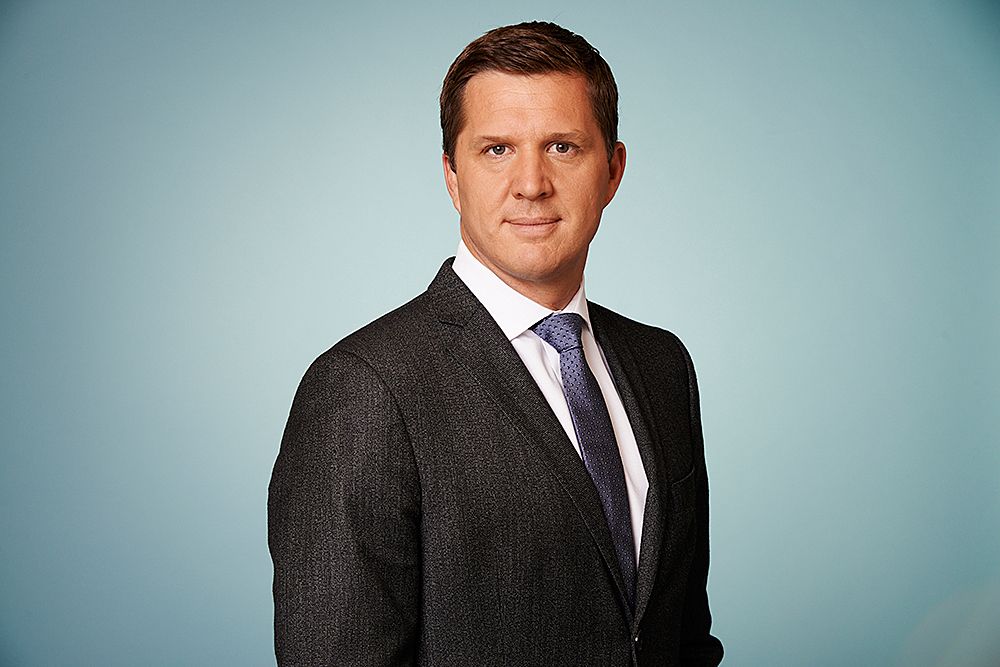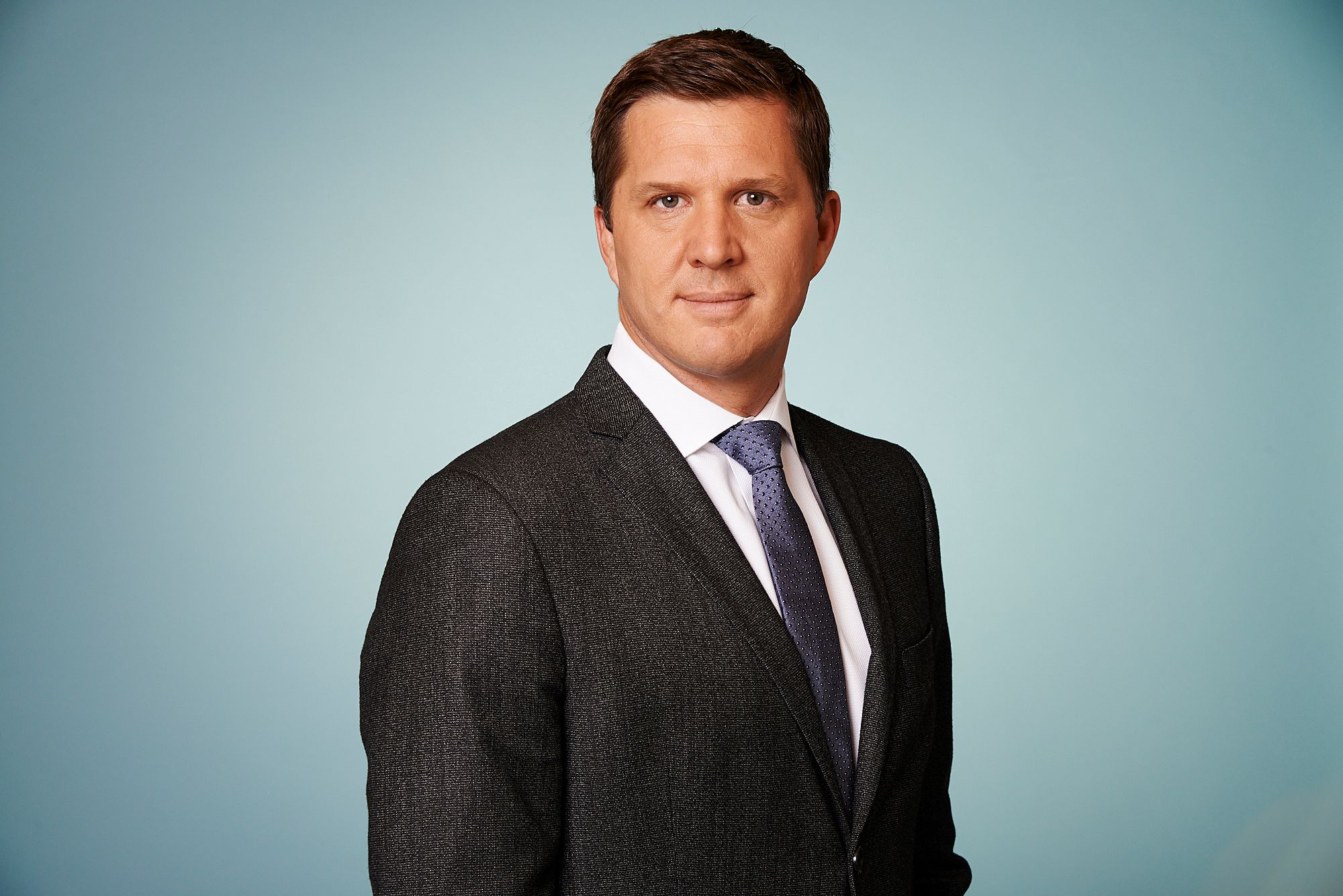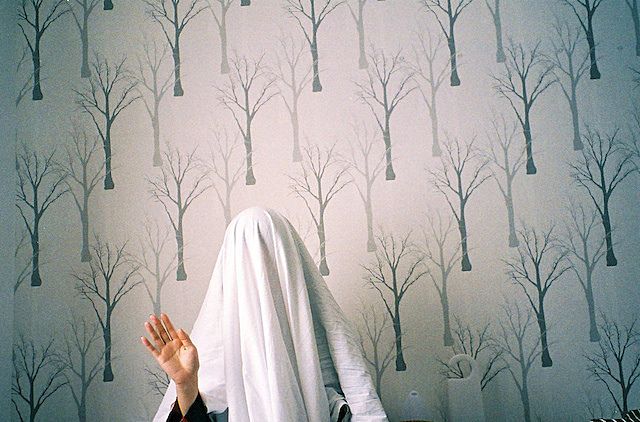Asking the Right Questions: Corin Dann
As we head towards New Zealand's 51st general election, we talk to four political editors who are tasked with setting the agenda. Today: TVNZ's Corin Dann
As we head towards New Zealand's 51st general election, Gavin Bertram talks to our political editors, the people who have been tasked with setting the agenda.
TVNZ's political editor Corin Dann reported on sports and politics for Radio New Zealand and Newstalk ZB before he joined TVNZ. He initially presented the Breakfast and Business shows, before returning to politics and becoming the network's political editor in May 2012. He also interviews on the Q&A show.
What’s your life like at the moment?
Very intense and very crazy it would be fair to say. The campaign is very fast this time around and there is a lot of intensity, and a feeling that the script has kind of been thrown out the window with this Dirty Politics book. That’s meant it’s pretty crazy, that’s for sure.
Was politics always the aim when you became a journalist?
Kind of, yeah. I studied politics at university and then got into broadcasting school in Christchurch. I remember I was accepted into two different courses; one was for journalism and one was for radio production and DJing and that sort of stuff. I mustn’t have been entirely sure, but I ended up doing the journalism one. At that point I remember working out what the press gallery was all about, and from pretty early on deciding that was where I wanted to get to. I kind of went a strange route and ended up being a sports reporter for quite some time. But there’s a bit of similarity between sport and politics.
Whatever experiences you have before the press gallery are probably useful in some way.
To be honest I was pretty green, and I was lucky I got an internship at Radio New Zealand sport and had some great guys I worked with there – Barry Guy, Gary O’Hearn, Stephen Hewson – who are all still there. It’s nice to be able to work with people like that at an early stage of your career and ease you into things. After about a year and a half I made the jump across to the newsroom.
What were your first press gallery experiences like?
Again I was very lucky because someone tipped me off about Newstalk ZB needing a replacement journalist to work with Barry Soper. I rang him up and went and met him and had a coffee at Bellamy’s. We hit it off and he hired me a week or so later. I had a fantastic time because Barry’s such a great guy and extremely experienced. He was just a brilliant guy to work with, very loyal. With Helene Ambler, Barry and myself, we were a pretty tight team for about three years. Those were my first years in the gallery, from around 2001. I covered the 2002 election and had a really fun time.
What do you believe are the traits of a good political journalist?
You’ve got to have a lot of energy, you’ve got to be curious I think, and be prepared to be interested in a really wide range of issues and not be scared or put off by complicated stories and details. Arguably the most important thing is being able to distil it down and explain to people why stuff matters. Often you’re dealing with really complicated stories about anything from health to education or the government books. Just being curious and being able to focus in on what are the most important issues and why people should care and why this is important and being able to communicate that back to people in a way they can understand.
It takes quite some time I think to get that, and arguably a lot of the time you’re just racking up experiences and going through different stories and doing them over and over again. You learn the ways in which you can do that and get the information to people in a good way. And then of course you need to be able to understand the motivations and the contexts and the back stories and why people are doing things. The never ending layers sort of unfold, and you need to be able to provide that as well as the information about why somebody is doing something and what it means. Yesterday was a classic example, when all the Prime Minister said was Judith Collins was ‘unwise’ to have done something, but the context of that was hugely significant given that he’d backed her for six days and defended her. A slight word change can in fact be a massive signal to the public about a change of stance, and it’s our job to decipher that and just ram it home for people.
What are the main frustrations in your job?
It’s frustrating that we can’t often go into as much detail as we’d like, as we only have a limited time on every night. It’s a small window on the six o’clock news and usually three or four minutes of politics if you add it all up. Sometimes with big stories we’re going to get more, but often it’s hard to do the more detailed stories simply because we don’t have the time and the resources. That can be frustrating. Generally speaking you’d have to say that politicians in New Zealand are most of the time fairly accessible. Particularly when Parliament is sitting, there are number of mechanisms we have to get to politicians. Generally they want to talk, and even if they don’t there are other ways we have access in terms of the caucus and bridge runs as we call them, where they have to enter into Parliament or the Caucus room and we get access to them. We’re pretty lucky in that respect.
Those situations often look quite fraught?
They are often quite fraught. And sometimes when it’s really bad the politician in question might try and different route into Parliament so they avoid us. If they do, of course, they face the risk of looking like they’re deliberately trying to avoid us. So often they do front and it can be really intense. There are a lot of stand-ups, and there are a lot of journalists now, it’s not just two TV cameras and a bunch of print and radio journos. There’s a lot of multi-media, most of the print and radio guys these days seem to have cameras and sophisticated gear. There’s a lot of jostling and stuff, all in good spirits and everyone gets on well, but it’s competitive and that’s not a bad thing.
The most competitive realm in New Zealand journalism do you think?
There’s no question that it is very competitive between the TV networks, but all the media in the gallery are pretty competitive. But at the same time we all work alongside each other, so it’s not bad-natured at all. It’s a healthy thing; at the end of the day we’re all just chasing stories and that’s the number one thing. We’re all just after the story and there is competition to be the one who is on it and doing it in the right way.
It’s frustrating that we can’t often go into as much detail as we’d like... It’s a small window on the six o’clock news and usually three or four minutes of politics if you add it all up.
Can you explain the scope of your role as a political editor?
First and foremost I am the face and the front for TVNZ when it comes to the station’s political coverage. Inevitably that means for the big stories I’m going to be fronting them and providing analysis and context, and trying to explain why it matters. The analysis role is a big part of it. There’s also an interview role that I have on the Q&A show which is an extension of that, interviewing politicians every Sunday throughout the campaign.
During the day it’s a bit more of traditional role, hunting down stories and trying to work out what’s important. There’s an enormous amount of stuff that comes via your desk or are told about during the course of any day. Particularly on a Tuesday when Parliament is sitting and you’ve got Caucus meetings in the morning and an enormous amount of information and number of stories that are floating around. Part of my job is working out which one of these - and we’ve got three reporters here - are going to make it onto the news. And then I’m going to fight to get them as high as I can on the bulletin. I have a producer here, Peter Stevens, who’s fantastic, and we work together often to work out how we’re going to cover things and which stories are the most important of the day that New Zealanders need to know about at six o’clock at night.
It’s quite a strange day. It’s a job that can be highly adrenalised, and can be terrible when it’s quiet. It can be nice to start digging around on your own stories and issues that you think aren’t getting enough coverage and start putting in Official Information Requests and being a more traditional journalist. But this is such a volatile place that things will break so quickly that you’ve just got to be prepared to jump in, boots and all. You end up living this life of really high intense periods and then you take your down time when you can.
How do the accusations of bias against the media sit with you?
I don’t really care and I don’t give it too much thought. People will say whatever they want to say. I just know that I and my producer and my editors try as hard as we can to run by the basic principles of journalism, to be fair and to be balanced. I think we do a pretty good job. That’s certainly our intention and that’s certainly what we try and do. People will judge it however they judge it. I know I’ve had days when I’ve been attacked by left-wing bloggers and right-wing bloggers for a story I’ve done. You’re never going to please everyone. But we’re after the story and we try and do it in the most fair and balanced way we can, and we put an enormous amount of effort into trying to do that.
How do you develop the thick-skin necessary to do the job?
You do need to be thick-skinned. When I was hosting the Breakfast show and to a lesser extent on the Business show, when I was on that for three years, it's your face on TV and you’re in people’s living rooms. They feel like they know you, and the deal is that you want them to trust you, but they feel like they’ve got some ownership over you in a way because you’re a part of what they watch. I think that it's a good thing and I try and think a lot about what I’m trying to do for the people who watch One News. It’s far and away the most watched TV channel in New Zealand, so I take that relationship with the viewers really seriously.
So I have developed a thick-skin and it doesn’t bother me now. What bothers me is if I get something wrong, if I make a mistake or if we haven’t done something as well as we should have or could have. If I get criticised for that then I deserve it, but I spend a lot of time trying not to make those mistakes. But if someone is just mouthing off that they think there’s a reason I’m biased or if they don’t like me, I haven’t got the time to worry too much about that.
Is there a scalp-claiming culture in New Zealand political reporting?
I don’t like to think that there’s a style that all media do. I would call it more of a ‘Gotcha!’ type culture, and that’s the criticism I’ve seen. I don’t know if that’s entirely fair. It may be for some media outlets, but we are here to hold politicians to account. Because they are politicians they do have to be held to a higher standard than others in power. That’s the role of the fourth estate, to hold these guys to account. I’m sure it’s difficult and challenging for politicians when the press gallery is chasing them around, but it’s just the nature of the job. I think it’s part of a functioning democracy that we have a media that does hold politicians to account.
I think we’ve seen that New Zealanders are pretty forgiving, and everyone makes mistakes, and it’s often the way it’s dealt with that’s the problem.
Do you sometimes wonder how people think they will get away with things?
Usually I subscribe to the idea that it’s a cock-up rather than a conspiracy. But what surprises me more is often how politicians, if they’ve done something wrong, respond. And it’s often the response that confuses the situation that ends up getting them into trouble. It surprises me that often they don’t realise they’ve made a mistake. The good ones do, and some of the politicians understand that. Gerry Brownlee, for example. We caught him out effectively going through the security gates. Once he learned that the media were aware of it and once he was made aware that he’d done it, everything he did from that point was about as good as he could do in terms of a damage response. He apologised, he put up his resignation, and he genuinely seemed to be saying he’d had a brain fade, and I think you saw that story die away within a day or two. It amazes me that sometimes other politicians choose not to take that route and it can often end badly. I think we’ve seen that New Zealanders are pretty forgiving, and everyone makes mistakes, and it’s often the way it’s dealt with that’s the problem.
Is it a good time to be doing what you do in New Zealand?
Absolutely. I don’t really give it that much thought, but I’m pleased that I have enough experience to be able to feel confident enough to cope with these types of stories where no one really knows what’s going on. You feel like everything is unravelling and there is no guide book to tell you what to do. You’ve got to rely on experience and judgement and any wisdom you’ve picked up from the time you’ve been here to cope with those stories when they’re breaking. You’re getting very little time to deal with things. The Hager book release being a classic example. I had been through the Corngate release and had politicians screaming at me red in the face in 2002, furious about the way it was being reported, not necessarily by the organisation I was working for. I saw how a book full of emails, there were different takes and different interpretations of it. It wasn’t as clear-cut as some had thought it might be initially. So when the Hager book was released and we there live and had 20 minutes to get our heads around a whole bunch of pretty serious allegations in a book based on some emails, it made it a little easier to be able to provide viewers with some context about why the book was being released at 5.30pm and that type of thing. And we had to work hard to get some balance and responses into the story. Because we had so little time it was hard to get any response from the other side. It limited our ability to do that and it frustrated some people. It was important to get that across in the report.
Asking the Right Questions continues through the week.
You can follow Corin at @CorinDann and via TVNZ
Previously featured in this series: Patrick Gower


